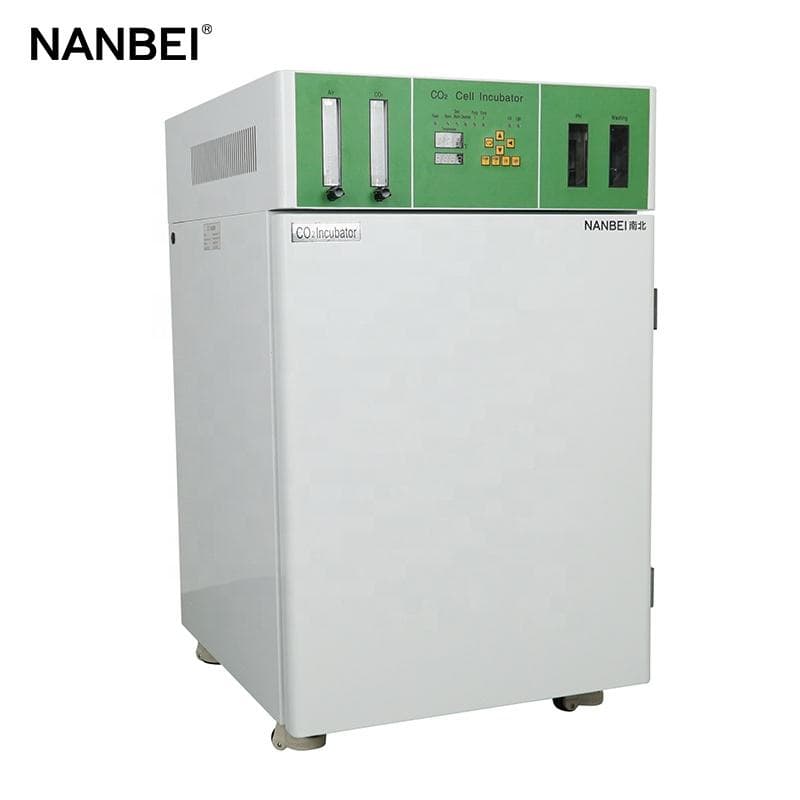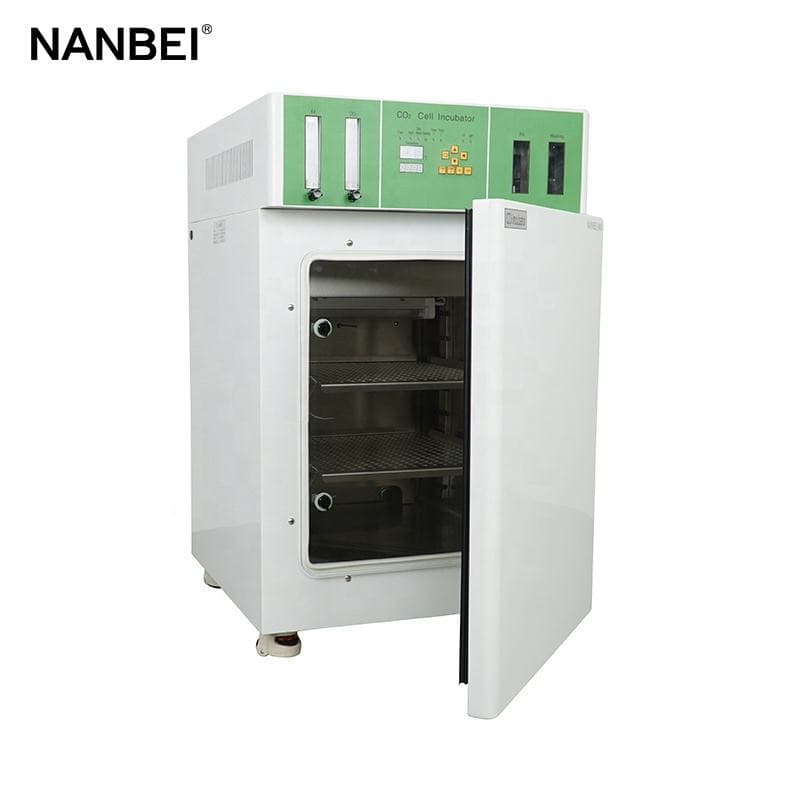The carbon dioxide incubator is a device used to culture cells or tissues in the laboratory. Its main purpose is in vitro culture, creating a growth environment that is as natural as possible for cell and tissue culture.

CO2 incubators have two heating methods:
I. Water-Jacketed type: Heating method uses a water-jacketed inter-layer.
1. Heating is achieved by surrounding the inner chamber with a separate hot water compartment. Hot water circulates through the water-jacketed inter-layer via natural convection, and heat is transferred to the interior of the chamber via radiation, maintaining a constant temperature.
2. Advantages: Stable temperature; slow temperature drop during a power outage.
3. Disadvantages: Slow temperature rise, unable to be stacked, and generally without high-temperature sterilization function.
II. Air-Jacketed type: Heating method combines direct and air heating.
1. Advantages: Fast temperature rise and able to be stacked.
2. Disadvantages: Faster temperature drop during a power outage compared to water-jacketed type.

Laboratory CO2 incubator provides constant environmental conditions for cell growth and tissue culture by maintaining a constant temperature and controlling gas composition. It typically consists of a housing, heating elements, cooling elements, a temperature control system, a humidity control system, and a CO2 control system.
...
...
...
...
...
...